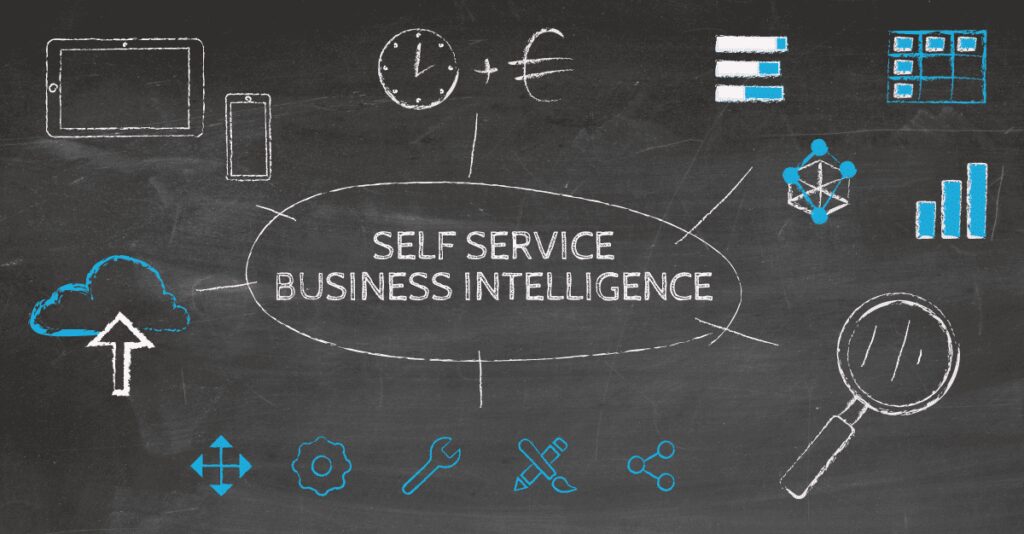In today’s fast-paced and data-driven business landscape, organizations are constantly seeking ways to gain a competitive edge. One of the key tools they rely on is Business Intelligence (BI). BI empowers companies to harness their data for informed decision-making, paving the way for growth, efficiency, and innovation.
What Is Business Intelligence?
Before delving deeper into the significance of BI, it’s essential to understand what Business Intelligence entails. At its core, Business Intelligence refers to the process of collecting, analyzing, and transforming raw data into actionable insights. These insights enable organizations to make informed decisions, identify trends, and optimize their operations.
BI encompasses a wide range of tools, technologies, and practices, all aimed at improving data-driven decision-making. It involves data visualization, reporting, data mining, and predictive analytics, among other techniques. The ultimate goal of BI is to help organizations gain a competitive advantage by leveraging data strategically.
The Power of Data

Source: indatalabs.com
Data has become a valuable asset for businesses across industries. It holds the key to understanding customer behavior, market trends, and operational performance. However, the sheer volume and complexity of data generated daily can be overwhelming. This is where BI comes into play, transforming raw data into valuable insights.
One of the fundamental aspects of BI is data warehousing. Organizations collect and store data from various sources, such as sales transactions, customer interactions, and website traffic, in a central repository. This data repository serves as the foundation for BI processes, ensuring that decision-makers have access to accurate and up-to-date information.
Data Visualization
Data visualization is a critical component of Business Intelligence. It involves presenting data in a visual format, such as charts, graphs, and dashboards, to make it more understandable and accessible. Visual representations of data enable decision-makers to quickly grasp trends and patterns, facilitating faster and more informed decisions.
Data visualization tools allow users to create interactive charts and dashboards that can be customized to suit specific business needs. This empowers organizations to monitor key performance indicators (KPIs), track progress, and identify areas that require attention.
What Is a Chatbot?
In the ever-evolving landscape of Business Intelligence, technology plays a pivotal role. One such technology that has gained prominence in recent years is the Chatbot. A Chatbot is a computer program designed to simulate human conversation, often powered by Artificial Intelligence (AI). These virtual assistants can interact with users through text or voice, answering questions, providing information, and even performing tasks.
Chatbots are becoming increasingly integrated into BI systems to enhance user experiences. They can provide real-time data updates, answer queries, and assist users in navigating complex datasets. This seamless interaction between humans and AI-driven Chatbots makes it easier for organizations to access and interpret their data, ultimately leading to better decision-making.
The Importance of Self-Service BI

Source: datapine.com
Traditional BI systems often relied on IT departments to generate reports and analyses, causing delays and bottlenecks. However, the emergence of self-service BI tools has changed the game. These user-friendly platforms empower non-technical users to access and analyze data independently.
Self-service BI allows business professionals to create their own reports, dashboards, and visualizations without the need for IT intervention. This democratization of data enables quicker decision-making and reduces the burden on IT teams.
Predictive Analytics and Machine Learning
In the quest for a competitive edge, organizations are turning to predictive analytics and machine learning as part of their BI strategies. These advanced techniques use historical data to forecast future trends and outcomes, helping businesses make proactive decisions.
Predictive analytics can be applied to various aspects of a business, such as sales forecasting, demand planning, and customer retention. By leveraging these technologies, organizations can optimize their operations, allocate resources efficiently, and identify opportunities for growth.
Data Security and Compliance
While harnessing the power of data is crucial, it’s equally important to ensure data security and compliance with regulations such as GDPR and HIPAA. BI solutions must prioritize data protection and privacy, especially when dealing with sensitive customer information.
Data encryption, access controls, and auditing mechanisms are essential components of a robust BI security strategy. Additionally, organizations must stay up-to-date with data governance best practices to mitigate risks and maintain trust with customers and stakeholders.
Data Collaboration and Cross-Functional Insights

Source: organimi.com
In the realm of Business Intelligence, fostering data collaboration and breaking down departmental silos is crucial for success. Often, different teams within an organization have access to separate data sets, limiting their ability to gain a holistic view of the business. BI solutions can bridge these gaps by consolidating data from various sources and providing cross-functional insights.
With the right BI tools, marketing teams can align their efforts with sales, finance, and customer service departments to better understand customer journeys and preferences. For example, combining sales data with customer support interactions can reveal valuable insights into customer satisfaction and potential areas for improvement. By promoting data collaboration, BI facilitates a unified approach to decision-making, ensuring that all teams are working towards common goals and objectives. This cross-functional synergy can lead to more effective strategies and improved overall performance.
Conclusion
In today’s data-driven world, Business Intelligence is not merely a luxury but a necessity for organizations seeking to thrive. It empowers businesses to extract valuable insights from their data, streamline operations, and make informed decisions. With the integration of technologies like Chatbots, self-service BI, and predictive analytics, organizations can unlock the full potential of their data.
As the business landscape continues to evolve, staying ahead of the curve with BI is essential. The ability to adapt, innovate, and leverage data effectively can be the key differentiator between success and stagnation in an increasingly competitive marketplace. Business Intelligence is not just a tool; it’s a strategic imperative for modern businesses looking to secure their future.



